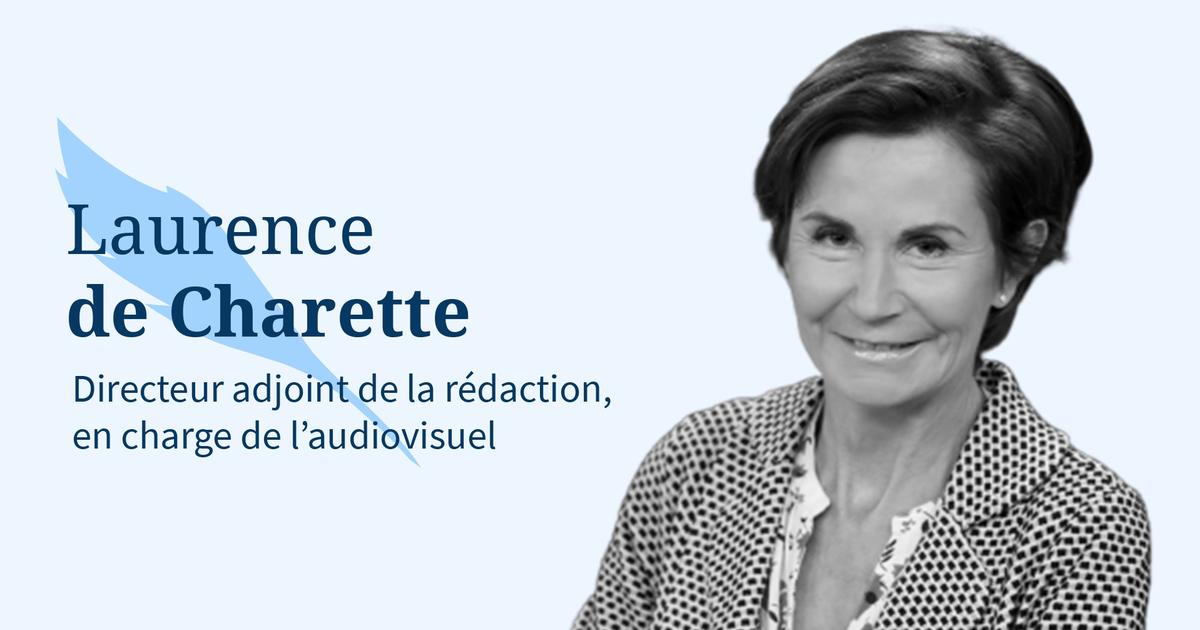Last week I had an experience as extraordinary as it was disturbing.
Craig Mundie, a former director of research and strategy at Microsoft, was demonstrating GPT-4, the most advanced version of the artificial intelligence chatbot
ChatGPT,
developed by
OpenAI
and launched in November.
Craig was preparing to brief the board of my wife's museum,
Planet Word,
of which she is a member, about the effect ChatGPT will have on words, language and innovation.
(Photo by Lionel BONAVENTURE / AFP)
"You have to understand," Craig warned me before beginning his demo, "this is going to change everything about how we do everything.
I think it represents
humanity's greatest invention
to date.
It's qualitatively different, and it will be transformative."
Craig added that large language modules like ChatGPT will constantly
increase
their capabilities
and move us "toward a form of artificial general intelligence," providing efficiencies in operations, insights, discovery, and insights "that have never been achievable before across all domains."
Then he did a demonstration.
And I realized that Craig had fallen short.
First, he asked GPT-4—of which Craig was a selected advanced tester and which had just been released to the public—to summarize Planet Word and its mission in 400 words.
He did it perfectly, in a few seconds.
He then asked her to do the same in 200 words.
Another few seconds.
He then asked her to do the same in Arabic.
Just as fast.
Then in Mandarin.
Two more seconds.
Later, in English, but in the form of a Shakespearean sonnet.
A few more seconds.
Craig then asked GPT-4 to write the same description in an
alphabet verse
, where the first line begins with the letter A, the second with B, and so on to the end of the alphabet.
He did it with astonishing creativity, beginning:
Alluring in Washington, is a museum so grand
,
Built to teach, inspire and help us understand.
(Built to teach, inspire, and help us understand.)
Curious minds Planet
flock to Word's embrace,
Delving into language and its
intricate grace
Every exhibit here has
a story to tell ,
From the origins of speech to the art of the quill. (
From the origins of speech to the art of the pen.)
And so on up to Z.
That night I could barely sleep.
Watching how an AI system—its software, microchips, and connectivity—produces that level of originality in multiple languages in just a few seconds at a time, well, the first thing that came to mind was the observation of science fiction writer Arthur
C. Clarke
that "any sufficiently advanced technology is indistinguishable from magic."
The second thing that came to mind was a moment at the beginning of "The Wizard of Oz":
the tornado scene in which everything and everyone is lifted into a whirlpool, including Dorothy and Toto, and then swept from mundane black-and-white Kansas to the glittering, futuristic Land of Oz, where everything is in
color
.
We are about to experience such a tornado.
We have entered a Promethean moment:
one of those moments in history when certain new tools, ways of thinking, or sources of energy are introduced that are such a departure and advancement from what existed before that you can't change just one thing, you have to change everything.
That is, how it is created, how it competes, how it collaborates, how it works, how it is learned, how it is governed and, yes, how it cheats, commits crimes and wages wars.
We know the key Promethean epochs of the last 600 years:
the invention of the
printing press
, the scientific revolution, the agricultural revolution combined with the
industrial revolution
, the
nuclear power
revolution ,
personal computing and the internet
and... now this moment.
But this Promethean moment is not driven by a single invention, like the printing press or the steam engine, but by a
technological supercycle.
It is our ability to feel, digitize, process, learn, share and act, all increasingly with the help of AI.
This loop is being introduced into everything - from the car to the fridge, through the smartphone or combat planes - and every day it drives more processes.
That's why I call our Promethean era
"The Age of Acceleration, Amplification and Democratization
".
Never have there been more human beings with access to cheaper tools that amplify their power at an ever-accelerating rate, as they permeate the personal and work lives of more and more people at once.
And it's happening faster than almost anyone anticipated.
The potential for these tools to solve seemingly impossible problems—from human biology to fusion power to climate change—is staggering.
Let's think of an example that most people probably haven't even heard of:
how
DeepMind,
an AI lab owned by
Google's parent company
Alphabet , recently used its
AlphaFold
AI system to solve one of the most complex problems in science, with a speed and scope that astonished scholars scientists who had spent their careers slowly and painstakingly approaching a solution.
The problem is known as "
protein folding
."
Proteins are large and complex molecules, made up of chains of amino acids.
And as my Times colleague
Cade Metz
explained in an article on AlphaFold, proteins are "the microscopic mechanisms that direct the behavior of the human body and all other living things."
What each protein can do, however, largely depends on its unique three-dimensional structure.
Once scientists can "identify the shapes of proteins," Metz added, "they will be able to accelerate the ability to understand disease, create new medicines and otherwise probe the mysteries of life on Earth."
But, according to
Science News
, it took "decades of slow experiments" to unravel "the structure of more than 194,000 proteins, all housed in the Protein Data Bank."
In 2022, however, "the AlphaFold database exploded with predicted structures for more than 200 million proteins."
For a human that would be worthy of a
Nobel Prize.
Maybe
two.
And with it our understanding of the human body took a giant leap.
As a 2021 scientific paper, "Unfolding AI's Potential," published by the Bipartisan Policy Center, puts it, AlphaFold is a metatechnology:
"Metatechnologies have the ability to...help find patterns that contribute to discoveries in virtually all disciplines."
ChatGPT is another one of those metatechnologies.
But as Dorothy found out when she was suddenly transported to Oz, there was a good witch and a bad witch there, both fighting for her soul.
The same will happen with ChatGPT, Google Bard and AlphaFold.
We are prepared?
It does not seem:
We are debating whether to ban books at the dawn of a technology that can summarize or answer questions about virtually every book for everyone in a second.
Like so many modern digital technologies based on software and chips, AI is "dual-use": it can be a tool or a weapon.
The last time we invented such powerful technology, we created nuclear power, which could be used to light up an entire country or destroy the entire planet.
But the thing with nuclear power is that it was developed by governments, which collectively created a system of controls to stop its proliferation by bad actors - not perfectly, but not bad.
AI, by contrast, is being pushed by
private, for-profit companies.
The question we need to ask, Craig argued, is how to run a country, and a world, where these AI technologies "can be weapons or tools across the board" while being controlled by private companies and accelerating their power by the day.
And do it in such a way that the child is not thrown out with the bath water.
We're going to have to develop what I call "
complex adaptive coalitions
," where businesses, governments, social entrepreneurs, educators, competing superpowers, and moral philosophers come together to define how to get the best and buffer the worst from AI.
No actor in this coalition can solve the problem alone.
It requires a very different model of government from traditional left-right politics.
And we will have to make the transition amid the worst great-power tensions since the end of the Cold War and the culture wars raging in virtually all democracies.
We better figure this out quick because, Toto, we're not in Kansas anymore.
c.2023 The New York Times Company
look also
No one talks about the imminent danger of AI
AI detects breast cancer that doctors miss















